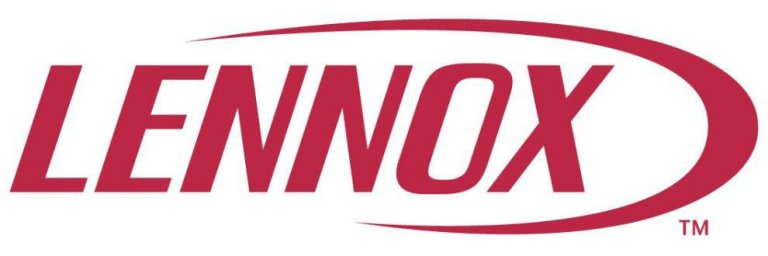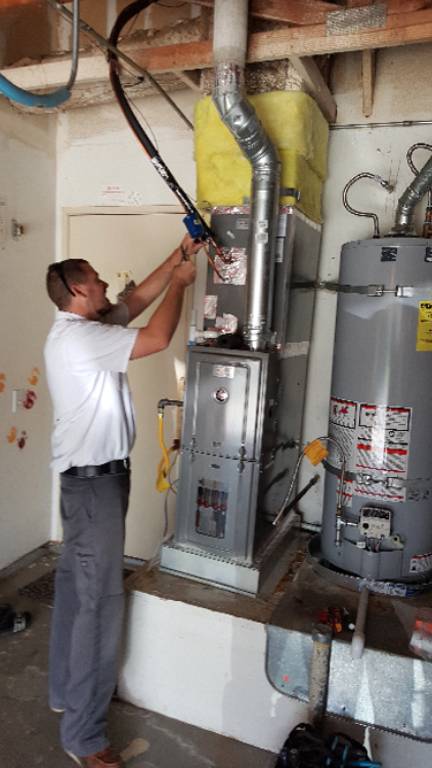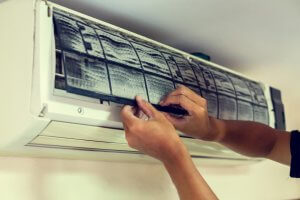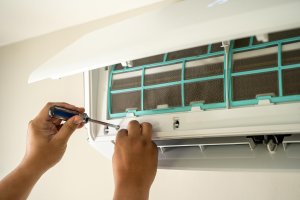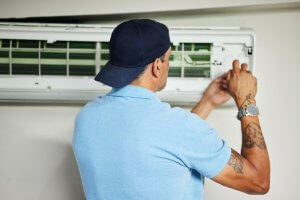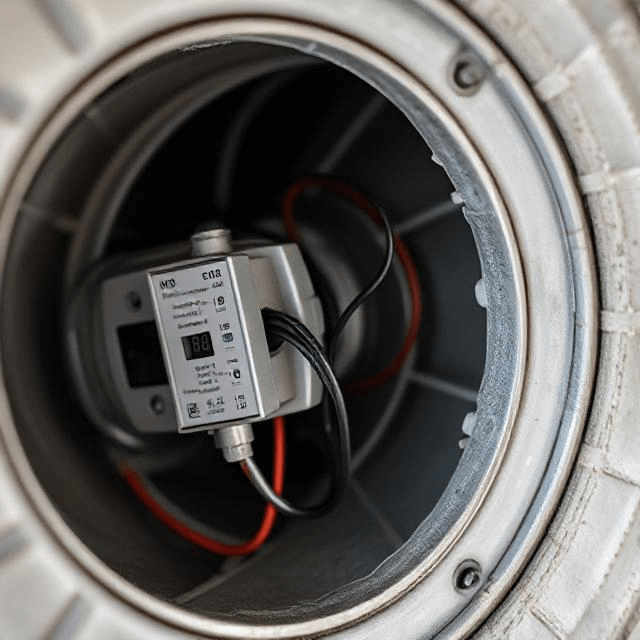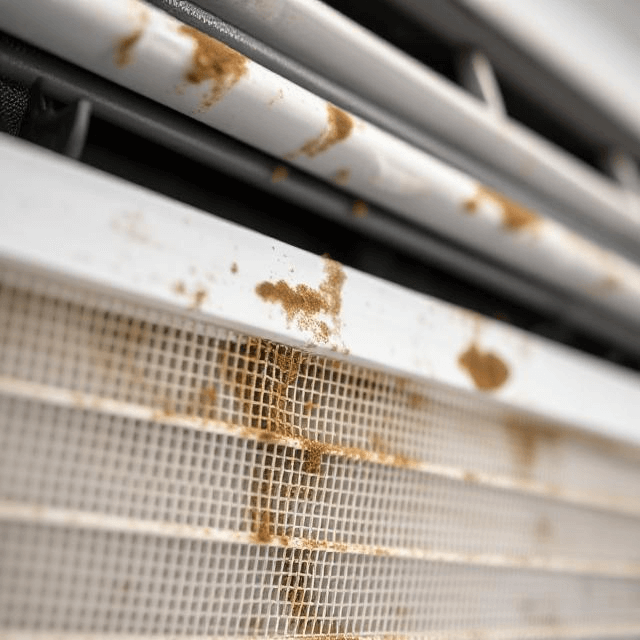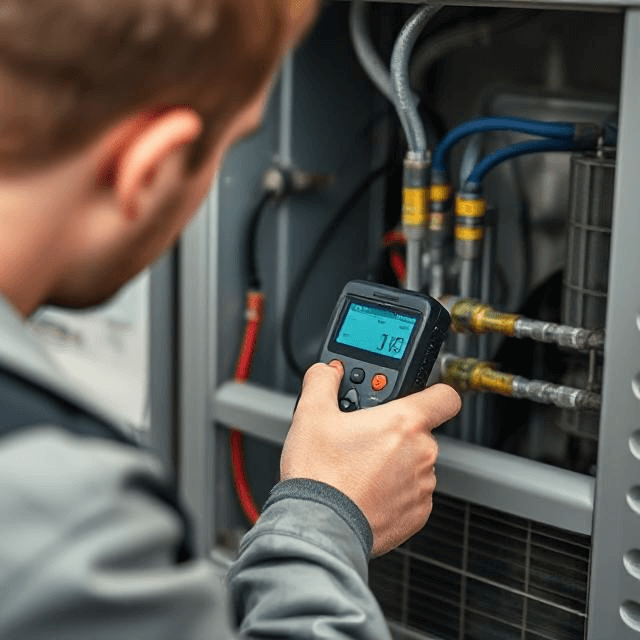Are you worried about your furnace shutting off unexpectedly?
Many homeowners are unaware that a dirty air filter is a common culprit behind furnace malfunctions.
A furnace can shut off if the filter is dirty, as it restricts airflow, causes overheating, and activates safety mechanisms to prevent damage.
Keep reading to discover how changing your air filter can prevent major disruptions, ensure continuous warmth, and save on energy costs. Learn the signs of a dirty filter and when to call in the Season Control HVAC for maintenance and repairs.
Will the Furnace Shut Off If the Filter is Dirty?
Yes, a furnace can shut off if the filter is dirty. A clogged filter restricts airflow, causing the furnace to work harder and potentially overheat. This can trigger the system’s safety mechanisms, leading to an automatic shutdown to prevent damage.
Regularly checking, replacing, or cleaning the air filter is essential to maintain airflow and prevent such issues. Understanding this aspect is crucial to ensuring efficient and safe operation of their heating system, especially during peak usage in colder months.
Why a Dirty Air Filter Makes A Furnace Stop Working
- A Dirty Air Filter Restricts Airflow: A clogged air filter limits airflow to the furnace. Without sufficient airflow, the furnace cannot operate efficiently or effectively.
- When airflow is restricted, your furnace has to work harder to circulate air. This extra strain can lead to overheating and potential system failure.
- Modern furnaces have safety features that shut down the system when overheating is detected to prevent damage and ensure safety.
- A furnace running with a dirty filter consumes more energy. This inefficiency increases utility bills and reduces the system’s overall lifespan.
- Continuously running a furnace with a dirty filter can lead to dust and dirt buildup, intensifying wear and tear that causes shut off.
Regular checking, replacing, or cleaning of furnace filters is crucial. It ensures your heating system runs smoothly, safely, and economically, especially during those cold winter months.
Furnace Issues Caused By Dirty Air Filters
Understanding the issues a dirty air filter can cause in a furnace is important. Here are the top concerns:
1. Decreases Airflow
The primary role of an air filter is to clean the air circulating through your HVAC system. When it’s clogged with dirt and debris, air can’t pass through as easily, reducing airflow and compromising heating efficiency.
2. It Causes the System to Overload
A dirty filter forces a furnace to work harder to push air through. This extra effort can lead to system overload and, in extreme cases, a complete system shutdown to prevent damage.
3. Increases Energy Bills
Energy consumption spikes when your furnace works overtime to compensate for the blocked filter. This inefficiency is reflected in higher utility bills, a concern for any cost-conscious homeowner.
4. Risks of Overheating
Restricted airflow can cause the furnace’s heat exchanger to overheat. Overheating not only risks system failure but can also be a fire hazard in severe cases.
5. Uneven Heating
A clogged filter may result in uneven heating. Some rooms might be warmer than others, leading to inconsistent comfort levels throughout your home.
6. Causes Premature System Failure
Continuous operation under these stressful conditions can significantly shorten the lifespan of your furnace, leading to premature failure and the need for costly replacements.
7. It Reduces Air Quality
A dirty filter is less effective at trapping contaminants, producing poorer indoor air quality. This is particularly concerning for those with allergies or respiratory issues.
8. Increases Maintenance and Repair Costs
Regular maintenance costs can rise due to the increased strain on your furnace. Additionally, the likelihood of needing repairs escalates with the continuous use of a dirty filter.
Maintaining clean air filters is not just about cleanliness; it’s an essential practice for ensuring your furnace’s efficient, safe, and cost-effective operation.
Prioritizing this aspect of home maintenance can save you from discomfort and costly repairs, especially during the demanding winter months.
Warning Signs Your Filter Needs To Replacement
Staying ahead of furnace maintenance is key. Here are critical signs that indicate your air filter needs replacement:
- Visible Dirt and Clogging: If the filter appears visibly dirty or clogged with dust, pet hair, or debris, it clearly needs to be changed.
- Reduced Airflow: Noticeably weaker airflow from your vents can indicate a blocked filter. This reduction can impact the overall comfort of your home.
- Increased Dust Accumulation: If you’re finding more dust than usual around your house, especially near vents, it could be due to a dirty filter not effectively trapping particles.
- Unusual Furnace Noises: A strained furnace might produce more noise than usual due to the extra effort required to push air through a dirty filter.
- Higher Than Usual Energy Bills: An unexplained spike in your energy bills may result from your furnace working harder to circulate air through a clogged filter.
- Frequent Thermostat Adjustments: Finding the need to adjust your thermostat for comfort constantly could be a sign of inadequate airflow caused by a dirty filter.
- System Short-Cycling: If your furnace starts and stops more frequently than normal, it could struggle to maintain the desired temperature due to a dirty filter.
Recognizing these signs and responding with timely filter replacement is crucial for maintaining a comfortable, efficient, and healthy home environment.
When To Consider Upgrading Your Air Filters
Knowing when to upgrade your air filters can enhance your home’s environment and the efficiency of your HVAC system. Here are key considerations:
- When there are Increased Allergens or Dust: If you notice more dust accumulation or allergies, upgrading to a higher MERV rating can provide better filtration.
- After Renovations: Post-home renovations can increase airborne particles. Upgrading your filter can help in capturing finer debris.
- When Introducing Pets: New pets mean more fur and dander. A higher-grade filter can effectively trap these additional allergens.
- During Seasonal Changes: Consider an upgrade before peak heating or cooling seasons for optimal system performance.
- In case of Health Concerns: If respiratory health is a priority, especially in homes with young children or elderly residents, higher efficiency filters are beneficial.
- If your current filter seems inadequate in maintaining clean air or efficient system functioning, an upgrade could be the solution.
Remember, while upgrading, ensure the new filter is compatible with your system to avoid restricted airflow and maintain furnace efficiency.
Why You Need To Change Your Filter Every Month
Changing your air filter monthly is crucial. Regular replacement prevents airflow blockages, ensuring efficient furnace operation and energy savings.
It also enhances indoor air quality by effectively trapping dust and allergens. This simple maintenance step prolongs your HVAC system’s lifespan, avoids costly repairs, and maintains constant home comfort, particularly during high-use seasons like winter and summer, when your system works hardest.
Call (818) 797-7917 for Furnace Maintenance Services!
Season Control HVAC is your go-to for ensuring your furnace runs smoothly. Remember, a clean air filter is crucial for efficient operation and preventing system shutdowns.
Regular maintenance, like filter replacement and annual tune-ups, can significantly improve your furnace’s performance and longevity. Upgrade your filters when necessary, especially during high-demand seasons, to maintain optimal air quality and system efficiency.
If you’re facing any of these issues or considering a new furnace installation, don’t hesitate. Call Season Control HVAC, your trusted HVAC company in Canoga Park, at (818) 797-7917 for reliable, expert service that keeps your home comfortable year-round.
